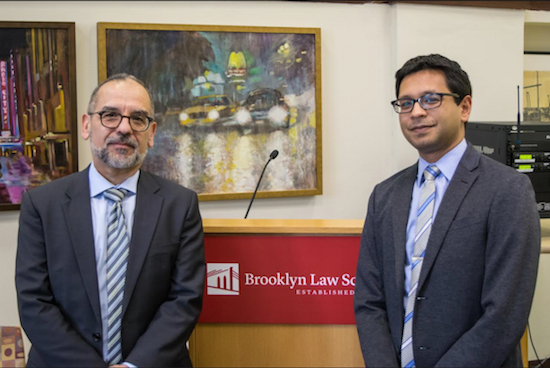Brooklyn Law School holds its first legal lunch examining presidential powers

In an effort to keep up with questions arising from President Donald Trump’s actions and executive orders, Brooklyn Law School has started a series of free “legal lunches” that are open to students as well as the general public.
The first pop-up class on Wednesday, titled “Executive Power: Orders, Appointments and Regulations” was hosted by Vice Dean William Araiza and professor Sabeel Rahman and drew nearly 50 people, mostly students.
“If there is a silver lining amid the storm clouds the president has stirred up, it is that our Constitution and the rule of law have become central in this increasingly urgent grand civics lesson,” said BLS Dean Nicholas Allard. “I am especially proud of the work our Brooklyn Law School faculty and students are doing in our pop-up classes, studying the applicable laws and regulations relating to the administration’s actions, providing legal advice and representation to those in need.

Brooklyn Boro
View MoreNew York City’s most populous borough, Brooklyn, is home to nearly 2.6 million residents. If Brooklyn were an independent city it would be the fourth largest city in the United States. While Brooklyn has become the epitome of ‘cool and hip’ in recent years, for those that were born here, raised families here and improved communities over the years, Brooklyn has never been ‘uncool’.